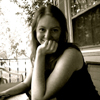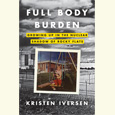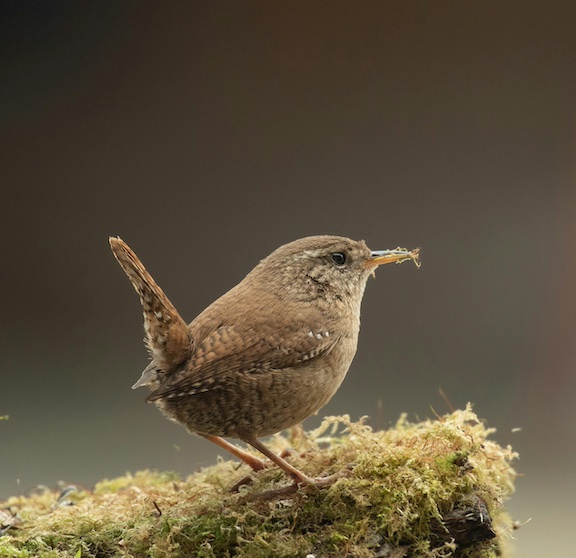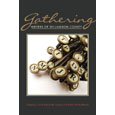An Invitation to the Festival
A Nashville native celebrates the arrival of the twenty-fourth annual Southern Festival of Books
I grew up in Nashville, trying to find my way as a writer and reader. Over the years, the Southern Festival of Books has given me many gifts. Some I tore open right away, and others seem to have opened in their own sweet time. I was seventeen the first year I made my way to Legislative Plaza on the second weekend of October. By then, I had been scribbling for almost half my life, but I was new to the habits of reading. I inhaled novels and poems in an improvised, haphazard way—going on instinct among the aisles at Davis-Kidd and flipping through the Norton Anthology my college-age brother left in his room. Those writers seemed as remote and bodiless as the tissue-thin pages of the anthology. Most were long dead, and those who weren’t lived in big, sophisticated towns like New York—cities that felt every bit as unreachable and forbidding as the Great Beyond. No matter how visceral or galvanizing their works might be, the writers themselves remained static, abstract ideas.
_0.jpg) One year, by some miracle, my high school offered a creative-writing class. Our teacher, who was thoughtful and inventive, earned major hero points by getting us out of class for half a day. She took us downtown to something called the Southern Festival of Books. I’ll never forget walking into that first session. Three poets—flesh-and-blood, walking, talking poets—were taking their places before the reading. I was stunned: poets really exist. When they read their work, they brought to life the possibility that writing was something you could learn, that writing was a real path you could take. Right in front of me were people who had taken that path. And now they’d come to our town.
One year, by some miracle, my high school offered a creative-writing class. Our teacher, who was thoughtful and inventive, earned major hero points by getting us out of class for half a day. She took us downtown to something called the Southern Festival of Books. I’ll never forget walking into that first session. Three poets—flesh-and-blood, walking, talking poets—were taking their places before the reading. I was stunned: poets really exist. When they read their work, they brought to life the possibility that writing was something you could learn, that writing was a real path you could take. Right in front of me were people who had taken that path. And now they’d come to our town.
Browsing the festival tents one year while I was in college, I picked up a copy of the Oxford American, a magazine I’d never read before. I sat down on the War Memorial steps and started reading. By that time, I’d already fallen in love with Eudora Welty, William Faulkner, Carson McCullers, and Flannery O’Connor. I loved them for their literary power but also for showing me that the world I knew best—the South—was fertile ground for literature. But in the Oxford American, I recognized a different kinship. For the first time, the way I saw my South, with its rapidly changing face and its enduring strangeness, stared back at me in print. I checked my festival schedule and found that a writer in the magazine was reading in the next session. I scrambled up from the steps and headed for the Capitol.
In 2010, I attended the festival in a state of mid-draft blur, nearing the end of my first novel. I’d reached one of those troubling crossroads that can happen to a draft. You love every character. You’ve got the narrative voice up and running. People say they like the pages you finally showed them. But you know in your gut that it’s not a novel. In all those lovely pages you’ve written, there’s no story. Fortunately for me, listening to Tom Franklin read from Crooked Letter, Crooked Letter might just be the best possible circumstance in which to reach this terrifying conclusion. Sure, my throat went hoarse. I gauged the distance to the nearest emergency exit. But Franklin’s gift for drawing you into whatever tale he’s spinning is undeniable. I had no choice but to listen. The following summer, when I saw that Franklin would be teaching at a summer conference hosted by the Oxford American, I jumped at the chance. I suspected that his teaching would echo what his fiction had already shown me: characters may have fascinating inner lives, but sooner or later, they’ve got to get up and do something.
I also remember another uneasy October years earlier. I was twenty-three, fretful about the direction my fiction might be headed, and knee-deep in applications to MFA programs. I remember slumping into Richard Bausch’s reading. During the Q&A, Bausch addressed the writers in the room, telling us not to fear, that writing was a worthy way to spend our lives. He encouraged us to concentrate only on this day’s work, no other concerns. My shoulders eased. I noticed that lots of other shoulders around me did too. Ten years later, I would be his student at the Sewanee Writers’ Conference. I would hear him offer the same counsel, delivered with the same quiet conviction. My shoulders would ease again, and I would glance around the table, as my fellow students took in his words. Imagining all of us returning home with renewed focus on our work, I would recall that festival session from a decade earlier and be filled with wonderment and gratitude for all the flesh-and-blood writers I had come to know.
If you’re looking for some walking, talking, flesh-and-blood writers, join me this weekend. Before it seemed possible that there might be writers living in my midst, the festival conjured them for me, a three-ring literary wonder complete with tents and feats of magic. Years later, it still holds the power to enchant. I hope you’ll stop by War Memorial Plaza and the rows of tents manned by small presses, bookstores, and literary journals. I hope you’ll come to witness writers you admire—and some whose names you’ve never heard before—risk their own acts of high-wire daring. By the end of the weekend, I’m betting you’ll be ready to run away and join them.

Emily Choate holds an M.F.A. from Sarah Lawrence College, and her writing has appeared in Yemassee and Tennessee Libraries and is forthcoming in The Florida Review. She lives in her hometown, Nashville, where she’s working on a novel.


